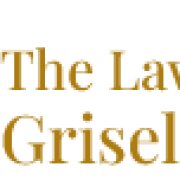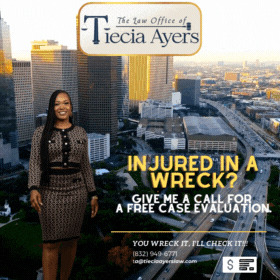Best Toxic Mold Lawyers in Texas
Share your needs with us, get contacted by law firms.
Free. Takes 2 min.
Or refine your search by selecting a city:
List of the best lawyers in Texas, United States
About Toxic Mold Law in Texas, United States
Toxic mold issues in Texas arise when certain types of mold grow indoors, potentially causing harm to property and health. These situations commonly occur in residential and commercial buildings after water damage or poor ventilation. The state of Texas acknowledges the risks connected to mold exposure and has established regulations to manage mold assessment, remediation, and disclosure. Mold problems often involve property disputes, landlord-tenant conflicts, insurance claims, and health complaints. Understanding the legal landscape is essential for anyone facing toxic mold issues in Texas.
Why You May Need a Lawyer
Individuals may need legal assistance with toxic mold situations for several reasons. Common scenarios include disputes with landlords regarding mold found in rental properties, homeowners experiencing insurance claim denial for mold damage, or buyers discovering mold after a real estate transaction. Exposure to toxic mold can also lead to significant health problems, spurring personal injury claims. Lawyers can help document damages, communicate with responsible parties or insurance companies, and pursue compensation for property loss or health expenses. Additionally, legal guidance ensures compliance with Texas laws and strengthens the position in negotiations or lawsuits.
Local Laws Overview
Texas has specific statutes and regulations governing the identification, disclosure, and remediation of toxic mold. The Texas Department of Licensing and Regulation (TDLR) oversees the licensing of mold assessors and remediators. Under the Texas Property Code, landlords are required to maintain habitable premises and address known mold hazards, while sellers have disclosure obligations under the Texas Real Estate Commission rules.
For those seeking mold assessment or remediation, state law mandates that only licensed professionals can perform certain types of work in buildings used for human occupancy. Renters and buyers have the right to request information regarding past or present mold issues. Insurance coverage for mold varies by policy, and the Texas Insurance Code regulates how claims are handled. Understanding these laws is critical for protecting your health and property.
Frequently Asked Questions
What is considered toxic mold?
Toxic mold refers to certain species, such as Stachybotrys chartarum, that can produce harmful mycotoxins. However, any mold in excessive indoor amounts can affect health or damage property.
Are landlords responsible for removing mold?
Landlords in Texas are legally required to address water leaks and moisture issues that contribute to mold. They must remedy conditions impacting health and safety when notified by tenants in writing.
Do sellers need to disclose mold when selling property?
Yes, Texas law requires sellers to disclose known previous or existing mold conditions to potential buyers. Failure to do so can result in legal claims for damages.
How do I know if I need professional mold remediation?
If mold contamination covers more than 25 contiguous square feet, Texas law typically requires licensed professionals to assess and remediate the problem.
Can I break my lease due to toxic mold?
If a landlord fails to repair mold-related conditions after proper notice, tenants may have legal grounds to terminate a lease under Texas Property Code provisions.
Does homeowners insurance cover mold damage?
Coverage for mold depends on your policy. Some policies exclude mold, while others offer limited coverage often requiring additional riders. Review your policy wording for specifics.
What health problems are linked to toxic mold?
Exposure to toxic mold can cause respiratory symptoms, allergic reactions, skin rashes, headaches, and in severe cases, long-term health effects. Seek medical advice if you suspect mold-related illness.
Who enforces mold regulations in Texas?
Mold assessment and remediation activities are regulated by the Texas Department of Licensing and Regulation. Local code enforcement or health departments may handle habitability complaints.
What should I do if I find mold in my apartment?
Notify your landlord in writing and document the issue. If the landlord does not respond, you may need to consult a lawyer to ensure your rights are protected and the problem is resolved.
Can I sue for damages caused by toxic mold?
Yes, if negligence or a legal violation resulted in mold exposure and subsequent harm, you may file a lawsuit for damages to cover repairs, medical costs, relocation, or lost property value.
Additional Resources
- Texas Department of Licensing and Regulation (TDLR): Oversees mold assessment and remediation professionals. - Texas Department of State Health Services (DSHS): Provides public health guidance on mold. - Texas Attorney General's Office: Information on landlord-tenant laws and consumer protection. - Local city or county code enforcement offices: File complaints about property condition or habitability. - U.S. Environmental Protection Agency (EPA): Offers general information about indoor mold.
Next Steps
If you suspect you are dealing with a toxic mold issue, start by documenting the problem with photographs and written records. Notify your landlord, property manager, or insurer in writing as required by Texas law. Gather any medical or repair bills related to the mold exposure. For more complex matters, such as health impacts, persistent property damage, or disputed liability, consult an attorney experienced in Texas toxic mold law. Legal professionals can evaluate your situation, explain your rights, and help you pursue the appropriate remedies, whether through negotiation or court action.
Lawzana helps you find the best lawyers and law firms in Texas through a curated and pre-screened list of qualified legal professionals. Our platform offers rankings and detailed profiles of attorneys and law firms, allowing you to compare based on practice areas, including Toxic Mold, experience, and client feedback.
Each profile includes a description of the firm's areas of practice, client reviews, team members and partners, year of establishment, spoken languages, office locations, contact information, social media presence, and any published articles or resources. Most firms on our platform speak English and are experienced in both local and international legal matters.
Get a quote from top-rated law firms in Texas, United States — quickly, securely, and without unnecessary hassle.
Disclaimer:
The information provided on this page is for general informational purposes only and does not constitute legal advice. While we strive to ensure the accuracy and relevance of the content, legal information may change over time, and interpretations of the law can vary. You should always consult with a qualified legal professional for advice specific to your situation.
We disclaim all liability for actions taken or not taken based on the content of this page. If you believe any information is incorrect or outdated, please contact us, and we will review and update it where appropriate.
Browse toxic mold law firms by city in Texas
Refine your search by selecting a city.















